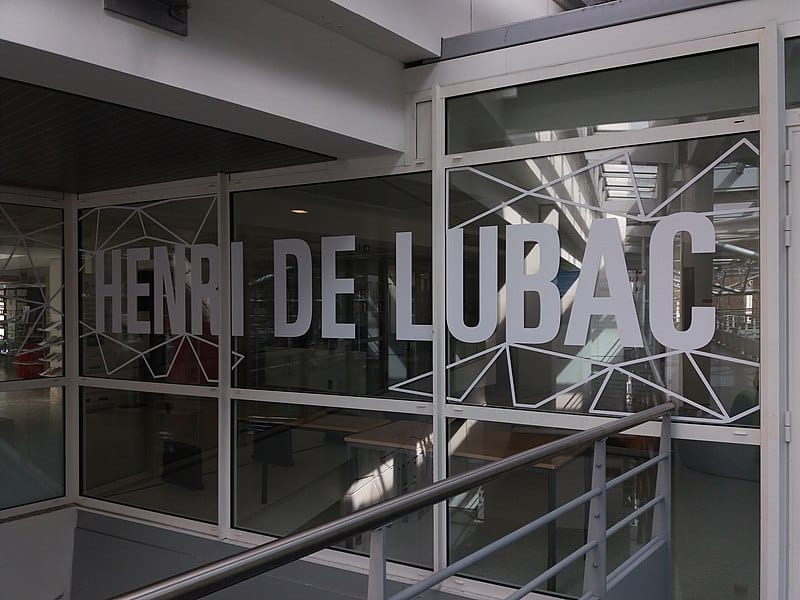Blessed Henri de Lubac?
George Weigel at First Things

On March 31, the bishops of France announced that they would petition the Holy See for permission to open a beatification cause for Father Henri de Lubac, S.J. Whatever the outcome of the cause, paying such a tribute to one of the great figures of twentieth-century Catholic theology was a fitting way to continue celebrating the sixtieth anniversary of the Council’s opening. For without de Lubac’s pioneering work in recovering the Fathers of the Church and the riches of medieval biblical commentary for contemporary Catholic thought, the key texts of Vatican II—its dogmatic constitutions on divine revelation and on the Church—would not be so richly scriptural and patristic in content and style.
Who was Henri de Lubac? He was a veteran of the French army in World War I, during which he was severely wounded. He was, as just noted, a leading figure in the movement to revitalize Catholic theology by a “return to the sources.” He was a leader in the French Catholic resistance to Nazism after the fall of France in 1940 and a keen student of modern atheism. Exiled to the theological sidelines during the last years of Pius XII, he was rehabilitated by John XXIII, who appointed him to one of the commissions planning Vatican II. During the Council, he played a pivotal, if under-appreciated, role by arguing in his gentle way that Vatican II was not summoned to reinvent Catholicism, but to renew it for mission by deepening the Church’s understanding of the gospel so that the Church might more effectively offer Jesus Christ to the world.
For it was Father de Lubac who ignited the War of the Conciliar Succession: the fierce struggle—not between stereotypical “progressives” and “traditionalists” but among the reformist theologians at the Council—over the meaning of the entire conciliar experience. The French Jesuit stood with his younger German colleague, Joseph Ratzinger, and others in insisting that Vatican II was a council of reform in continuity with tradition, not a council of rupture with the tradition—what some today call a council effecting a “paradigm shift.” And for this, Father de Lubac paid a considerable price.
When he was named a cardinal by John Paul II in 1983—the first in a series of influential Vatican II theologians so honored by the Polish pope—his Jesuit brethren in France, many of whom regarded him as a theological turncoat, behaved abominably. Initially furious at the nomination, then indifferent, they dismissed this as “not our affair” and refused to help the eighty-seven-year-old cardinal-designate prepare for the consistory at which he would receive the red hat.
